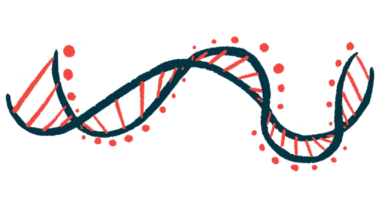TNX-2900, Intranasal Oxytocin, Receives FDA Orphan Drug Designation

The U.S. Food and Drug Administration (FDA) has granted orphan drug designation to TNX-2900, Tonix Pharmaceuticals’ oxytocin therapy for Prader-Willi syndrome (PWS).
Orphan designation is intended to speed the development of potential therapies for rare diseases, or those affecting fewer than 200,000 people in the U.S. The status is accompanied by financial incentives, regulatory support, and a period of marketing exclusivity if approved.
“Orphan-Drug Designation by the FDA is an important milestone and further validates our efforts to investigate the utility of TNX-2900 for Prader-Willi syndrome,” Seth Lederman, MD, CEO of Tonix, said in a press release. “It underscores the urgent, unmet medical need for patients diagnosed with this disease, and will benefit us as we continue to advance our program.”
PWS is associated with suckling difficulties, resulting in issues with feeding and insufficient weight gain in infancy. Hyperphagia, or insatiable hunger, typically emerges in childhood and leads to obesity.
Oxytocin, commonly known as the “love hormone,” plays a role in the brain’s reward system and is involved in feelings such as empathy, trust, and satisfaction from food.
Previous data suggested that PWS patients have fewer oxytocin-producing brain cells, which could underlie the feeding difficulties observed in those with PWS.
TNX-2900 is an intranasal (into-the-nose), potentiated form of oxytocin, meaning that it is more potent than the naturally occurring hormone. The therapy is intended to supplement the brain’s diminished oxytocin supply, and restore more normal feeding behaviors in adolescents and adults with PWS.
Tonix is not the first to develop intranasal oxytocin for PWS. Several other clinical trials have tested intranasal oxytocin formulations for PWS across patients of all ages but have shown variable results.
Previously, Levo Therapeutics developed LV-101 (intranasal carbetocin), a lab-made form of oxytocin intended to reduce hyperphagia in PWS patients. LV-101 was rejected for approval by the FDA, which noted a need for another clinical trial to confirm the therapy’s efficacy.
Tonix believes its formulation is more potent and more specific for oxytocin receptors.
The intranasal oxytocin technology used to develop TNX-2900 was licensed to Tonix by Inserm Transfert, the private subsidiary of the French National institute of Health and Medical Research (Inserm).
Recently, Tonix announced a research agreement with Inserm Transfert, in which the companies will collaborate to study the mechanisms by which oxytocin regulates feeding behavior in a mouse model of PWS — the results of which could help to speed TNX-2900’s clinical development.
While an injectable form of oxytocin, marketed as Pitocin, is approved to induce labor in expectant mothers, no intranasal formulations are currently on the market.
In addition to its TNX-2900 program, Tonix is developing another intranasal oxytocin formulation called TNX-1900 for the treatment of chronic migraine, which is expected to undergo Phase 2 clinical testing this year.







